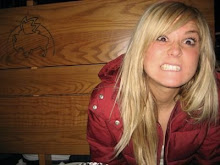CHAPTER 1
the political character of adolescence
a socialized person: one who has successfully internalized the prevailing norms of behavior modes (5). plus socialization experiences (5). plus natural disasters, technological innovations, military conquest, and drastic altercations to the legal system (6).
compliance systems:
family
arms of the state
religious institutions
educational institutions
experiences
the media
political learning
Reiss; an institutional supremacy view:
"if change were simple a function of incremental alterations generated within the family, the societal change would be slow indeed and individual behavior would remain relatively constant" (8; Reiss).
Greenstein: political behavior is a joint function of situational stimuli and psychological predispositions.
AN APPROACH TO POLITICAL LEARNING
needs to take into account the needs of individuals as well as system structures
-observational learning (social learning theory)
the person, especially the young one, learns by observing the behaviors of others (especially the family); done so by comparing comparing child and parent. (but also child and teachers and child and peers).
-reinforcement theory
behavior that is positively rewarded will be sustained; that which is negatively rewarded will be discontinued.
-cognitive theory
socializee as active; recognizes discontinuities not as just reactions to larger societal structural changes, but also a reflection of individually desired outcomes.
-resource availability
"Children born into families of different social status have differential opportunities for acquiring certain predispositions and skills generally valued in society" (22). --the major difficultly with the social stratification approach is that it deals with cayses at a second or third remove...and a great deal of noise enters the analysis because the relationship between class and child-rearing practices is extremely variable through time and space" (22).
Agents (pre-adult environment)--sources of observational learning--
-family and school
-peer groups
-media
-secondary groups
-political events
"overall then the job of sorting out the differential nd joint effects of socialization agents is a difficult task. But this is a problem that must be attacked if we are to understand how people come to be the way they are politically" (25).
Subscribe to:
Post Comments (Atom)

No comments:
Post a Comment